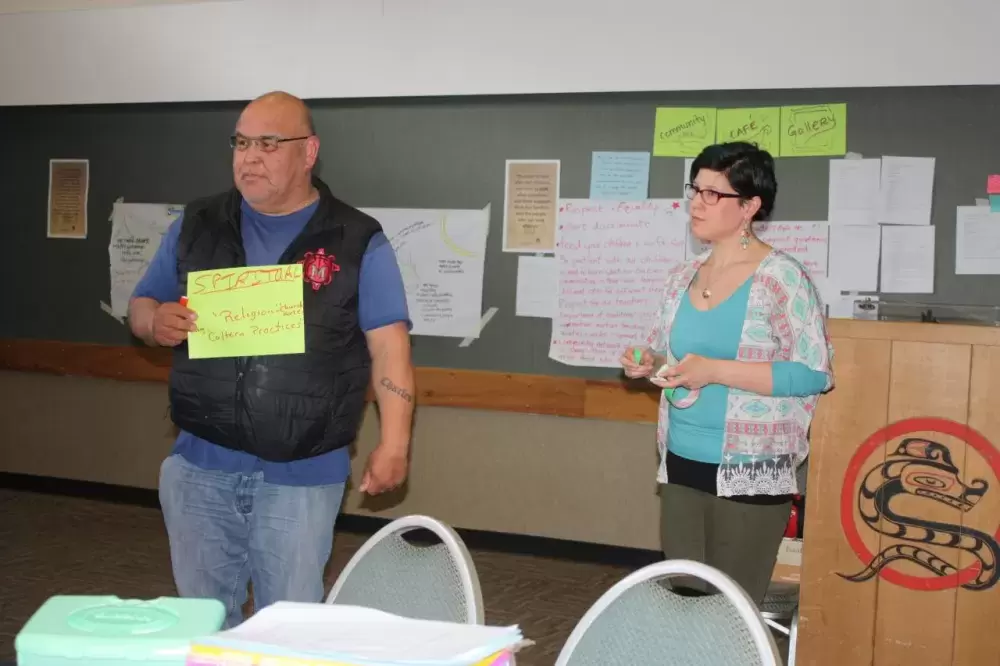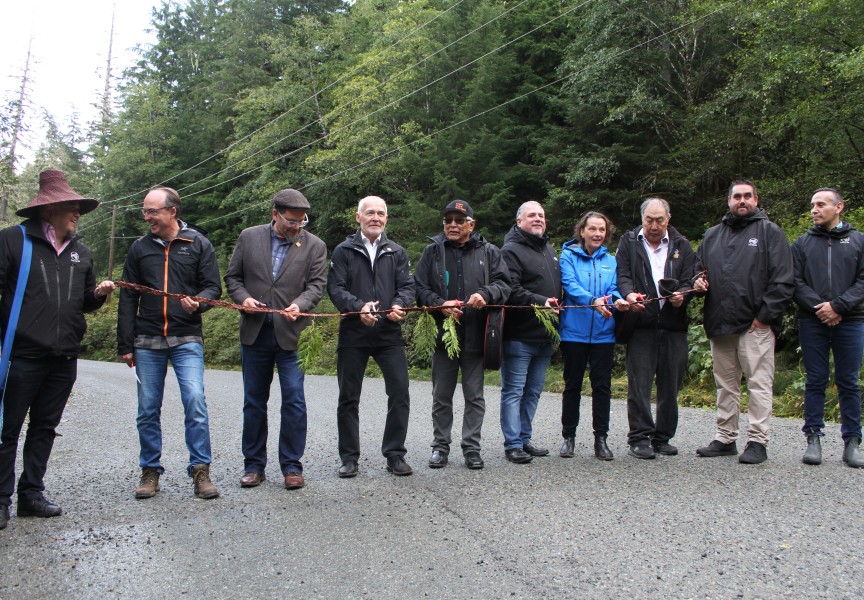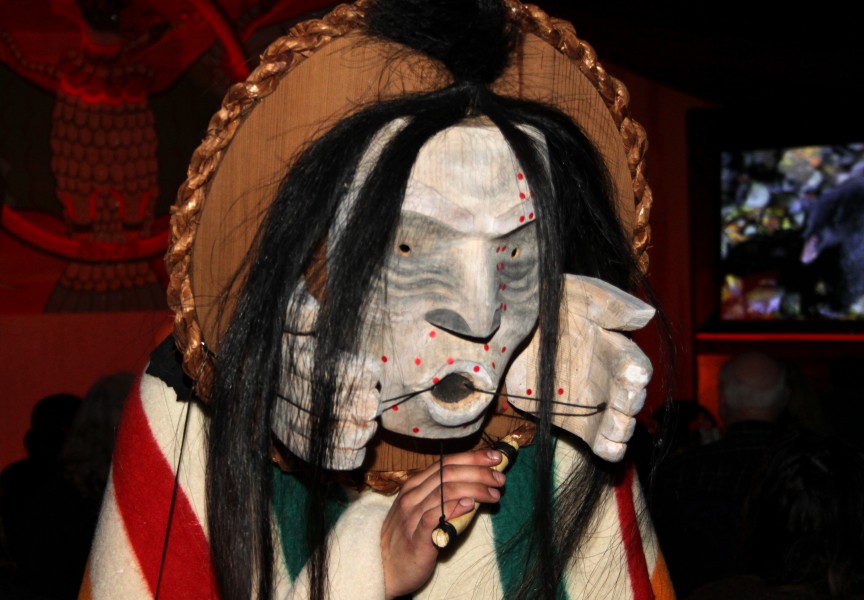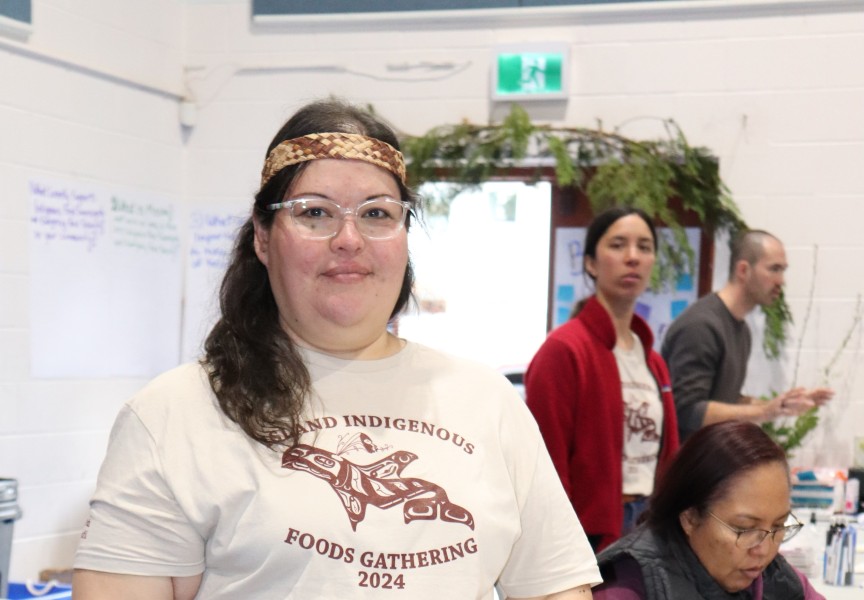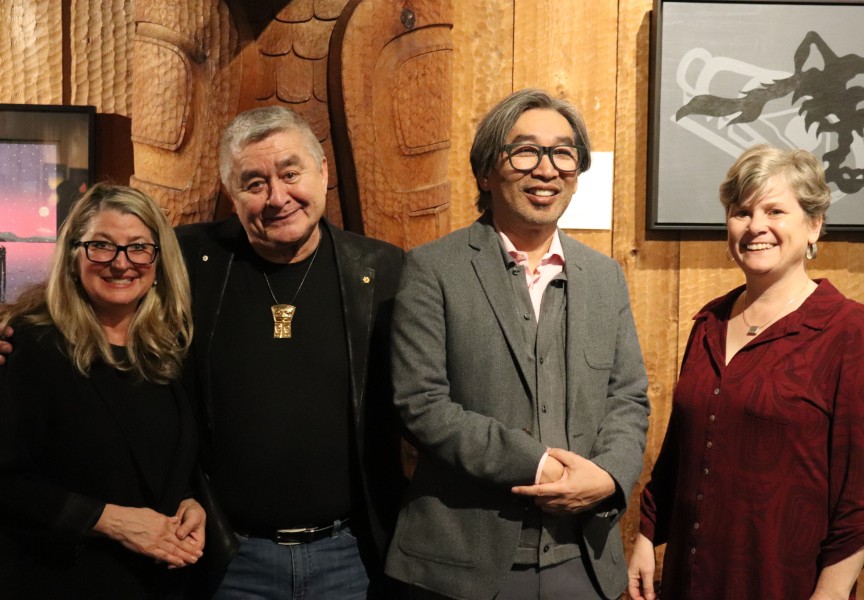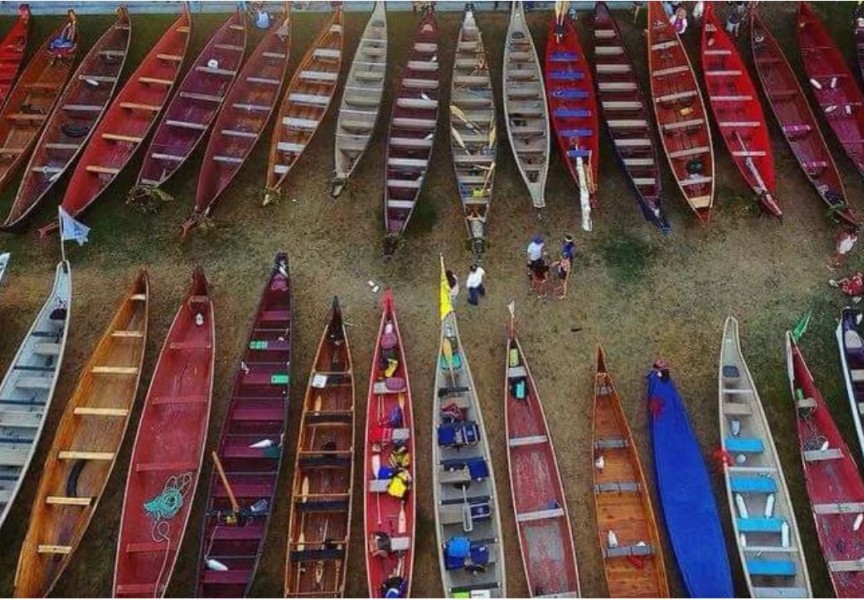The Nuu-chah-nulth Tribal Council’s Usma department hosted three regional forums in an effort to bring people together to talk about how to improve child and family services for Nuu-chah-nulth communities.
“Usma is proactively working to seek your ideas and suggestions on how Usma could better work with your community, coordinate services to strengthen and empower families,” reads the forum invitation.
Usma Child and Family Services began in the early 1980s in an effort to address concerns of struggling Nuu-chah-nulth families whose children were placed in foster care far away from home and away from their culture.
At a 1981 Nuu-chah-nulth Tribal Council annual general meeting, the issue of child welfare was raised. Concerned Nuu-chah-nulth people talked about a new concept – a child welfare service that incorporated Nuu-chah-nulth culture and values with the help of extended family and community.
In time, Nuu-chah-nulth leaders negotiated for and received delegated child welfare services from the provincial government.
The Usma program has been operating in Nuu-chah-nulth territories for the past 30 years and saw some funding cuts in the 2000s, forcing some changes in program and service delivery.
In 2015 Usma hosted a forum following the direction of Nuu-chah-nulth Tribal Council directors. According to NTC President Debora Foxcroft, Nuu-chah-nulth leaders talked about child welfare and Usma was tasked with hosting a special gathering where people could put their ideas for improvement forward.
The September 2015 forum reviewed the history and current practice of Usma. The original intent was to build a Nuu-chah-nulth child welfare services program that would support parents, relatives and communities in protecting children and strengthen Nuu-chah-nulth families.
From that forum came several recommendations and those recommendations were developed into priority actions that were endorsed by the Nuu-chah-nulth Tribal Council directors. Those priority actions have informed Usma work plans and proposals to seek additional funding.
The regional Usma forums that too place recently came from a commitment at the Usma Forum 2015 and the priority actions aimed at keeping the lines of communication open. It provides an opportunity for leadership, community and service partners to come together and share their ideas about working together and strengthening Nuu-chah-nulth families.
“Our work in supporting children, youth and families is a coordinated effort with each other, with communities, with other NTC programs and services: Mental Health, Child and Youth Services, Early Years programs supporting families in communities.
How do we better integrate and coordinate those programs to support families? That is what prevention can look like,” said Kyra Mason, Usma Director.
The Usma Forum held in Tofino was facilitated by Kelly Foxcroft Poirer of White Raven Consulting. She led the people through break-out groups that she called Community Café discussions. The smaller tables allowed a group of six to eight people to talk about solutions and the vision for strengthening Nuu-chah-nulth families.
They tackled questions such as:
• How do our teachings about usma (a Nuu-chah-nulth word meaning precious ones) passed down from our elders change the way we see each other? (When we are all usma, how might we change the way we treat each other, work together and live together?)
• Many of our families and communities have strengths. How are we utilizing that to strengthen all families, children and care and in our communities?
• How can services and programs (i.e. prevention and support) look different in order to strengthen our families?
When the larger group reconvened some shared ideas that were brought up in Community Café discussions.
Tom Campbell, Ahousaht, suggested more happy gatherings.
“We need to get together more often; we do fish barbeques outside my house and anybody is welcome to grab a plate and talk,” he said.
The Ahousaht community has done duck soup nights, hiyishtup (chiton) and clam get-togethers. “We’ve done a pasta night at the hall and we’re even thinking about doing a bologna night,” he said, adding that it gets the community together to socialize.
Ideas for improvement in family care were recorded and taped to the walls. Ideas included:
• Culturally-based prevention; families really want to take care of their own children. They want to be supported by Usma.
• There is a need for better communication keeping the needs of the children front and center, always.
• There should be low barrier options for culturally-based treatment programs.
• There should be funding flowing into communities to support social programs. It was noted that communities are growing every year but the funding for programs and services isn’t keeping pace.
• Elder role models should be identified in each community so that families could potluck with them in order to share the teachings.
• Adopt-a-grandparent is an idea that is growing in Nuu-chah-nulth communities.
• More work needs to be done to help children aging out of the system, who may wonder where they belong. A sense of family community for those that have aged out.
• There is a strong desire to build on culture. To use cultural practises in caring for children in care and beyond.
The regional forums were held in Port Alberni (April 20), Tofino (April 26) and Campbell River (May 12). They were open to everyone and drew social workers, foster parents, grandparents and service agencies including the RCMP.
“An incredible amount of wisdom poured out here,” said Foxcroft-Poirer, adding that all of their work will be compiled into a report.

